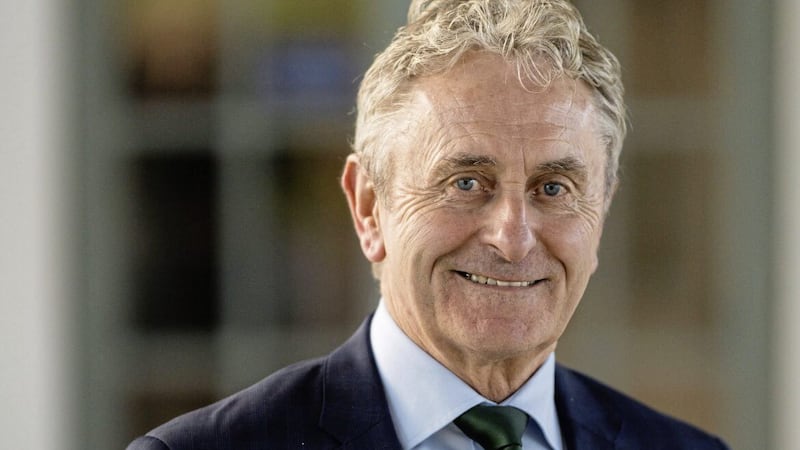The brave work of local communities which created the circumstances for the Good Friday Agreement should be celebrated as the 25th anniversary of the peace accord approaches, the head of a peace fund has urged.
Events are being planned in 2023 to mark a quarter of a century since the agreement saw the setting up of the Stormont Assembly.
The signing of the accord in 1998 came after intense multi-party talks and was endorsed by referendums in both Northern Ireland and the Republic of Ireland.
Then-UUP leader David Trimble and SDLP leader John Hume were awarded the Nobel Peace Prize for their efforts.
While paying tribute to the political leaders, Paddy Harte, chairman of the International Fund for Ireland (IFI), called for the often unseen work behind the scenes to be acknowledged.
In 1998, UK government negotiator Jonathan Powell called the IFI “the great unsung hero of the peace process”.
Originally set up in 1986, the fund backs community projects run by scores of groups to promote reconciliation between nationalists and unionists, with funding from international governments including the United States. Canada and Australia.
Mr Harte said all the peace-makers should be celebrated for an agreement which may not have happened without years of unseen work.
He emphasised the role of women, describing how mothers often played a vital but understated role during the Troubles.
“The peace process is owned by communities who did an awful lot of work in extraordinary times and created the building blocks which led up to the Belfast/Good Friday Agreement in 1998,” he told the PA news agency.
“It’s something we’re very proud to be part of. I’m pretty sure that the agreement might not have been as easy to reach or might not have happened at all if all that ground work not been done by communities at local level, and we’re proud to support them.
“At the time of the agreement, Jonathan Powell said that the hero of the peace process was a fund. While we were delighted that he said that, we would say that we supported the heroes of the Good Friday Agreement, people at ground level who took major risks.
“Our messaging will be around ensuring that all of the peace-makers get recognised for their contribution to an agreement that may not have happened without the years of very difficult challenging work at community level.
“The peace process wasn’t just 1998, it was years and years and years of difficult, challenging work at community level. We want to make sure their voices are heard.”
Mr Harte described society as “unrecognisable now from what it was” despite the current collapse of the Assembly amid a row over Brexit’s Northern Ireland Protocol.
“There are major gains. The Assembly is not the only measure of the success of the agreement – you can see it walking through Belfast or walking through Derry, much less political violence and progress around peace walls,” he said.
“We measure it on the basis of how much better life is. It’s not perfect, but the inevitable level of violence is gone, and that’s the major gain.
“The Assembly not being up and running isn’t ideal but communities continue to work to make life better and fill the gap up to a point.
“However, there is an awful lot more to celebrate – someone described it to me as the aggregate of marginal gains.
“It is time to celebrate the role of communities.”
Throughout 2022, Mr Harte said there has been an emphasis on developing leadership programmes to ensure continuity of work at community level when others with long years of experience retire.
He praised work done by Action for Community Transformation (Act) in the Shankill Road to divert young people from getting involved in disorder as well as progress at five Peace Wall sites in Northern Ireland.


